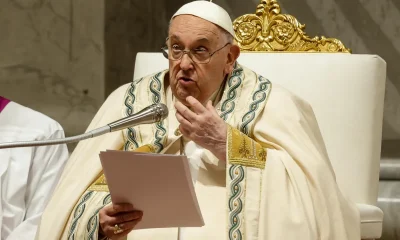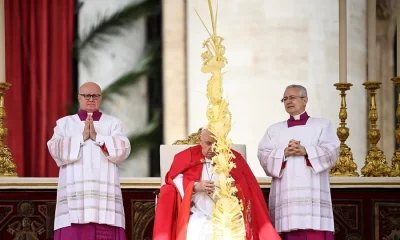International
Pope Francis is “very interested” in visiting the Dominican Republic, according to Abinader
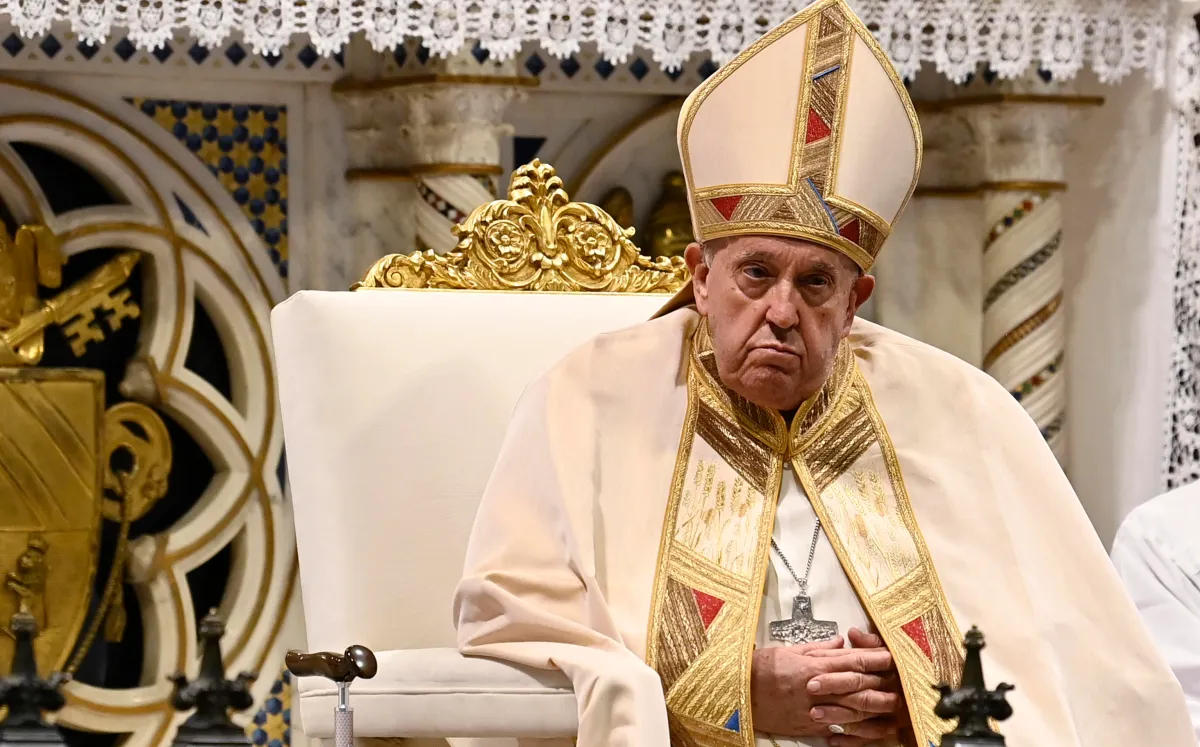
The President of the Dominican Republic, Luis Abinader, said that Pope Francis was very interested in visiting the Caribbean country, as the pontiff would have told him last week during a private hearing in the Vatican.
“We invited him” to visit the country “and I saw him very interested in coming and we are following up on that invitation,” Abinader said during his weekly press conference, dedicated this Monday to the trip made last week to Europe, which took him to Italy and Portugal.
The conversation with the pontiff was “quite fluid, I found him in very good health, with some difficulties walking but totally lucid and in a very good mood, in a very good mood.” “That meeting was very cordial and very pleasant,” said Abinader, who during the meeting with the pope also addressed issues such as the situation in Ukraine or Haiti.
In addition, the president met with the Vatican Secretary of State, Pietro Parolin, and with the Secretary for Relations with States and International Organizations of the Holy See, Monsignor Richard Gallagher.
On the other hand, as for the meeting he had with the president of Portugal, Marcelo Rebelo de Sousa, Abinader pointed to the success of the European country in aspects “of great interest to the Dominican Republic, it is an eminently tourist country, they have a population similar to the Dominican one, but they receive 30 million tourists, and they have made a lot of progress in the digital transformation part “and they are collaborating with us” in that matter.
In that sense, Abinader mentioned the Simplex program, equivalent in Portugal to the Dominican “Zero Bureaucracy”, which will be addressed in a virtual meeting and later a Portuguese delegation will visit the Dominican Republic to make an exchange of experiences and “see the cases that we can replicate in the country.”
The Dominican president also visited the Portuguese Navy, the oldest in the world, an institution with which the acquisition of several patrol ships was addressed, vessels that are not very old, but that are changing them for a series of requirements and that are destined for the fight against drug trafficking from North Africa.
Abinader also referred to his intention to be present at the Ukrainian peace conference in mid-June in Switzerland and in which about 160 States will participate: “I think that. the more countries we are present advocating for world peace (…), it will help peace and that is what we are looking for,” he said.
International
Trump urges Putin to reach peace deal
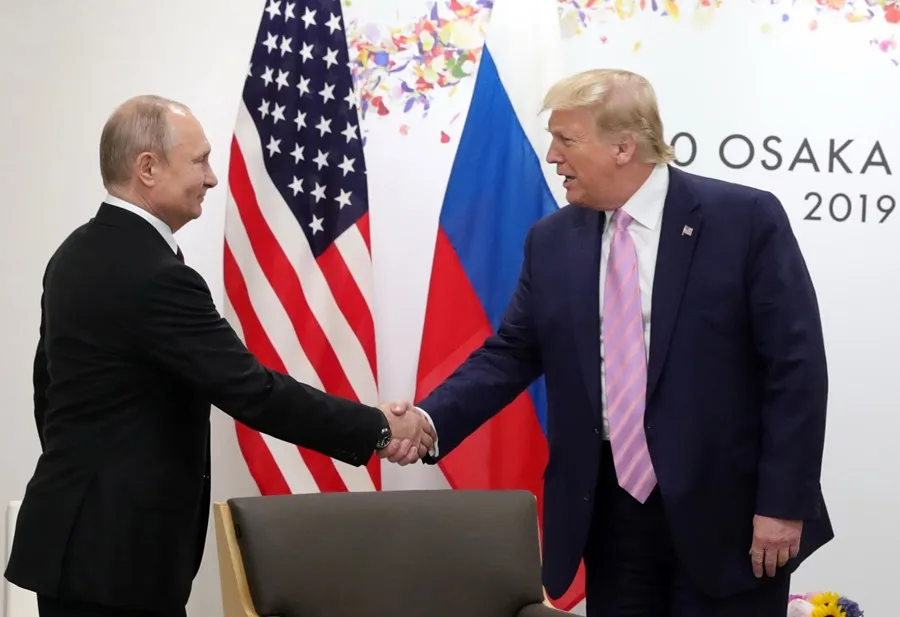
On Monday, U.S. President Donald Trump reiterated his desire for Russian President Vladimir Putin to “reach a deal” to end the war in Ukraine, while also reaffirming his willingness to impose sanctions on Russia.
“I want to see him reach an agreement to prevent Russian, Ukrainian, and other people from dying,” Trump stated during a press conference in the Oval Office at the White House.
“I think he will. I don’t want to have to impose secondary tariffs on Russian oil,” the Republican leader added, recalling that he had already taken similar measures against Venezuela by sanctioning buyers of the South American country’s crude oil.
Trump also reiterated his frustration over Ukraine’s resistance to an agreement that would allow the United States to exploit natural resources in the country—a condition he set in negotiations to end the war.
International
Deportation flight lands in Venezuela; government denies criminal gang links

A flight carrying 175 Venezuelan migrants deported from the United States arrived in Caracas on Sunday. This marks the third group to return since repatriation flights resumed a week ago, and among them is an alleged member of a criminal organization, according to Venezuelan authorities.
Unlike previous flights operated by the Venezuelan state airline Conviasa, this time, an aircraft from the U.S. airline Eastern landed at Maiquetía Airport, on the outskirts of Caracas, shortly after 2:00 p.m. with the deportees.
Interior Minister Diosdado Cabello, who welcomed the returnees at the airport, stated that the 175 repatriated individuals were coming back “after being subjected, like all Venezuelans, to persecution” and dismissed claims that they belonged to the criminal organization El Tren de Aragua.
However, Cabello confirmed that “for the first time in these flights we have been carrying out, someone of significance wanted by Venezuelan justice has arrived, and he is not from El Tren de Aragua.” Instead, he belongs to a gang operating in the state of Trujillo. The minister did not disclose the individual’s identity or provide details on where he would be taken.
International
Son of journalist José Rubén Zamora condemns father’s return to prison as “illegal”
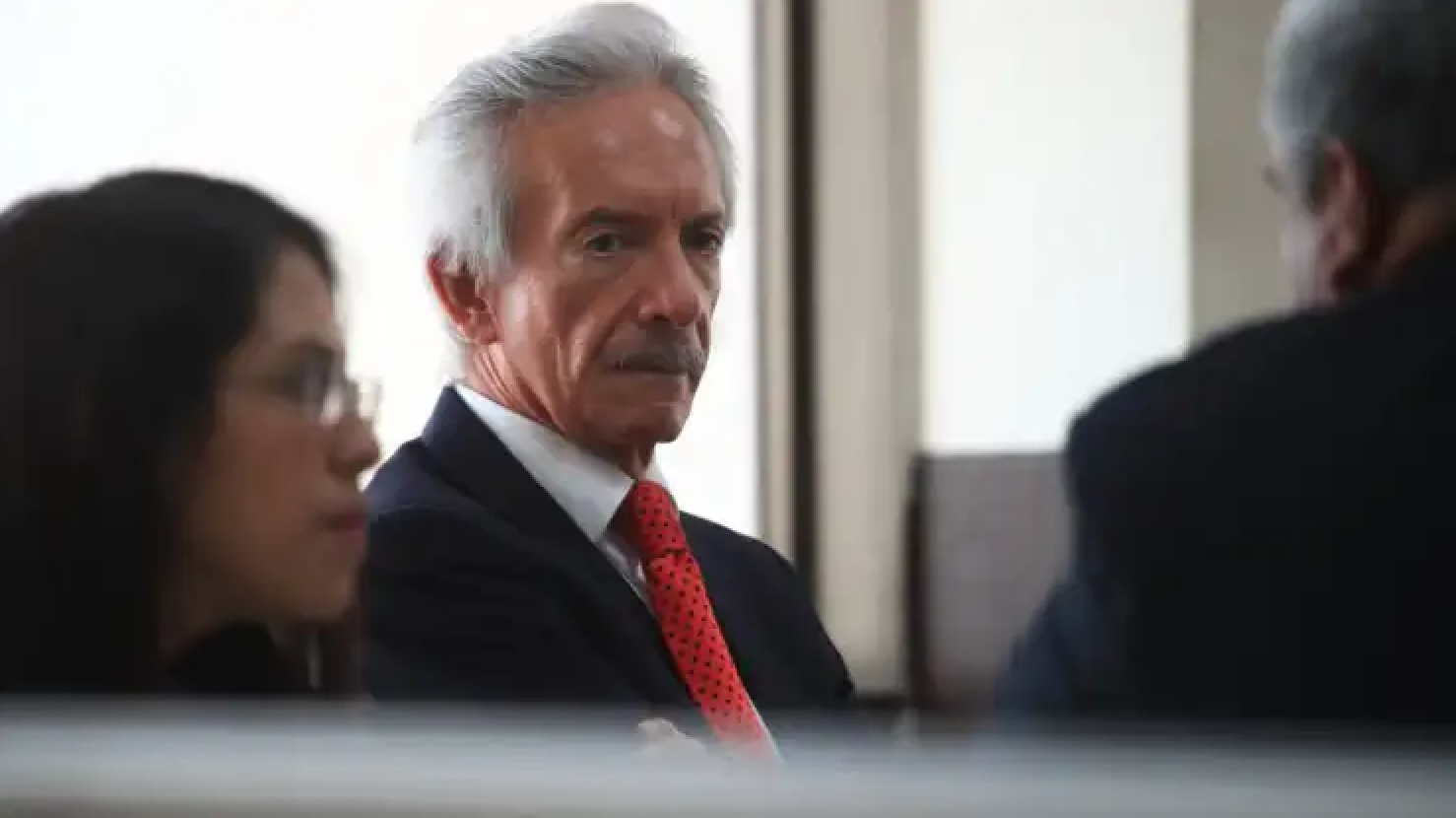
The son of renowned journalist José Rubén Zamora Marroquín, José Carlos Zamora, has denounced as “illegal” the court order that sent his father back to a Guatemalan prison on March 3, after already spending 819 days behind barsover a highly irregular money laundering case.
“My father’s return to prison was based on an arbitrary and illegal ruling. It is also alarming that the judge who had granted him house arrest received threats,” José Carlos Zamora told EFE in an interview on Saturday.
The 67-year-old journalist was sent back to prison inside the Mariscal Zavala military barracks on March 3, when Judge Erick García upheld a Court of Appeals ruling that overturned the house arrest granted to him in October. Zamora had already spent 819 days in prison over an alleged money laundering case.
His son condemned the situation as “unacceptable”, stating that the judge handling the case “cannot do his job in accordance with the law due to threats against his life.”
-

 International4 days ago
International4 days agoSon of journalist José Rubén Zamora condemns father’s return to prison as “illegal”
-

 International4 days ago
International4 days agoMiyazaki’s style goes viral with AI but at what cost?
-

 Central America2 days ago
Central America2 days agoU.S. Homeland Security Secretary urges Mexico to strengthen Guatemala border
-

 International2 days ago
International2 days agoTrump urges Putin to reach peace deal
-

 Central America3 days ago
Central America3 days agoPanama police clarifies that Interpol alert for Martinelli is still pending
-

 International3 days ago
International3 days agoDeportation flight lands in Venezuela; government denies criminal gang links
-

 Central America2 days ago
Central America2 days agoPanama grants Martinelli 72-hour extension to travel to Nicaragua
-
Central America5 days ago
Nicaragua revokes legal status of 10 more NGOs, bringing total to over 5,600














